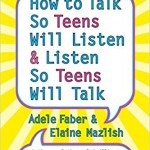Is the problem with the kid, the teacher, or both?

My fourth-grade daughter is off to a really rough school year. The teacher she has been assigned seems to have a real personality conflict with her. From what is being described to me by my daughter, it does sound like she is being unfairly singled out and picked on by the teacher. Other students with the same type of behavior are not getting in trouble, but my daughter is. I fully expect my daughter to be disciplined when she has done something that breaks the rules, and I don’t think I’m one of those moms who thinks her kid can “do no wrong.”
I’ve tried talking to the teacher to get the other side of the story, but the teacher has been dismissive, saying my daughter is “not in line with the kind of behavior she expects in the classroom” — which seems vague at best. What should parents do in this situation? Do I go over her head to the principal? Is this one of those “teachable moments” when I should tell my kid to just deal with it, since there are difficult people in the real world, too? My gut instinct is to protect her from unfair treatment, so I’m torn here. Help!
Response by Erin Goodwin, MS, LPC of Ozark Guidance
This is certainly a tough spot to be in! Without literally being a fly on the wall in that classroom, it’s hard to know what is truly happening. We all want what’s best for our children, both teachers and parents. It sounds like approaching the teacher, maybe with some new techniques in mind, might be a good place to start.

Before you request a meeting, assuming positive intent can be helpful in situations like these. Remember the teacher is trying to help your child in the way that she thinks is best. Going into a conversation with an open mind can help clear up communication and avoid conflict.
Keep in mind if you feel yourself becoming frustrated, to stop, take a deep breath, and go back to your common goal. The book Crucial Conversations: Tools for Talking when Stakes are High by Patterson, Grenny, McMillan & Switzler 2002, talks about remembering your ABCs.
A) Agree or point out an area of agreement first. You and the teacher both want your daughter to get a good education and have positive behaviors in the classroom.
B) Build or add elements that may have been left out of the previous discussion. Ask the teacher to share with you some of the specifics regarding her expectations of students in her classroom as well as any examples of situations when your daughter did not meet those.
C) Compare, or rather than suggesting someone is wrong, suggest that you differ. There may be some points that you still do not agree about and it is ok to restate why you believe the way you do and for each of you to explain your point of view without judgment or blame.
You could let the teacher know that you’re hopeful that your daughter is making her best efforts in her class and that maybe there are some things you each could implement that would allow those efforts to shine. You may ask for more communication from the teacher if your daughter does have a difficult day or offer to give the teacher a heads-up if the morning didn’t go well so she knows what to expect in class that day. Getting to know each other a little more can help bridge gaps in communication and develop stronger relationships.
If problems continue or the conversation still does not result in the agreement you hoped, involving someone like the school counselor might be a helpful next step. This could provide a more objective outsider who is not the teacher’s boss but could share ideas on the support needed for both the teacher and for your daughter.
If they see any concerns with your daughter’s behaviors in this class, you both may talk about extra supports your daughter might need, such as school-based counseling services. Also, most principals I have encountered take a collaborative approach to helping students, and parents and teachers find the most effective ways to work together.
It could be helpful to approach them with another Crucial Conversations method called Contrasting, for example, “I don’t want to get anyone in trouble by making assumptions. I do want to ensure my daughter has a positive experience at this school and would like to talk more with you about that.”
Best wishes in the new school year!
Therapists at Ozark Guidance would be happy to answer your questions and read what’s on your mind. Click here to read more questions and answers in the On Your Mind category. Click the butterfly icon below to fill out an anonymous submission form with your question or concern. The form contains NO identifying information and is designed to give local women an online place to share concerns with a person qualified to offer feedback.
 Disclaimer: This RESPONSE does not provide medical advice It is intended for informational purposes only. It is not a substitute for professional medical advice, diagnosis or treatment. Never ignore professional medical advice in seeking treatment because of something you have read on nwaMotherlode or Ozark Guidance websites.
Disclaimer: This RESPONSE does not provide medical advice It is intended for informational purposes only. It is not a substitute for professional medical advice, diagnosis or treatment. Never ignore professional medical advice in seeking treatment because of something you have read on nwaMotherlode or Ozark Guidance websites.





